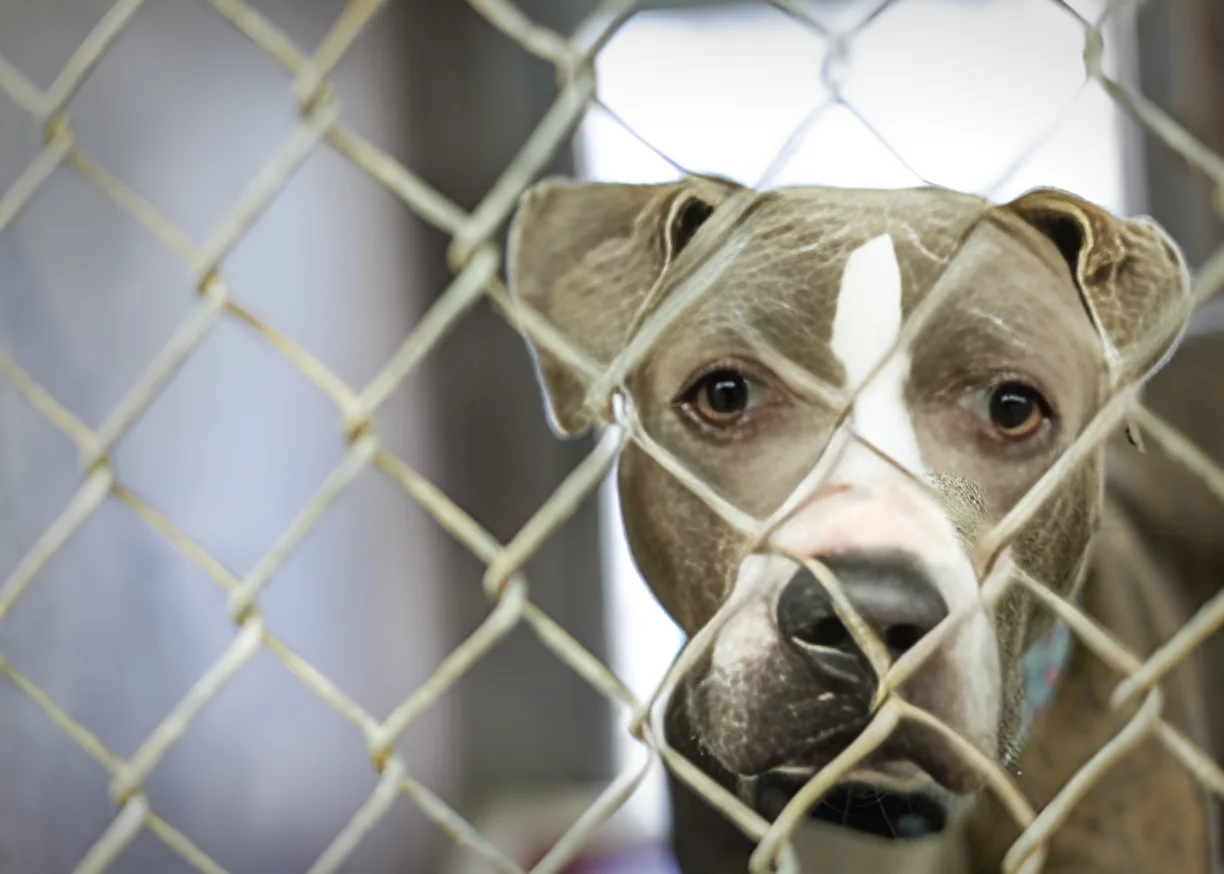The high number of Pit Bulls in shelters is primarily due to overbreeding, misconceptions about the breed, and breed-specific legislation. These factors contribute to the abandonment and surrender of Pit Bulls at alarming rates.
Pit Bulls are one of the most misunderstood and misrepresented dog breeds in the United States. Despite their loyal and affectionate nature, they often find themselves in shelters more than any other breed. This article delves into the reasons behind this phenomenon, exploring the impact of overbreeding, societal misconceptions, and legal challenges that contribute to the high number of Pit Bulls in shelters.
Overbreeding and Backyard Breeding
The Role of Overbreeding
Overbreeding is a significant factor contributing to the high number of Pit Bulls in shelters. Many breeders focus on quantity over quality, producing litters without considering the long-term welfare of the dogs. This practice leads to an oversupply of Pit Bulls, many of which end up in shelters when they cannot be sold or cared for.
- Backyard Breeding: Backyard breeders often lack the knowledge and resources to breed responsibly. They may breed Pit Bulls for profit without proper health screenings or socialization, resulting in dogs with behavioral and health issues.
- Puppy Mills: Similar to backyard breeders, puppy mills prioritize profit over the well-being of the dogs. Pit Bulls from these facilities are often poorly treated and inadequately socialized, increasing the likelihood of them being surrendered to shelters.
Misconceptions and Stigmas
Misunderstanding the Breed
Pit Bulls suffer from a negative reputation that is largely undeserved. Misconceptions about their temperament and behavior contribute to their high shelter population.
- Aggression Myths: Pit Bulls are often labeled as inherently aggressive, a misconception fueled by media reports and sensationalized stories. In reality, aggression in dogs is more about individual behavior and training than breed.
- Fear and Misinformation: Potential adopters may avoid Pit Bulls due to fear and misinformation, leading to longer shelter stays and higher euthanasia rates for these dogs.
Breed-Specific Legislation (BSL)
Legal Challenges
Breed-specific legislation (BSL) targets Pit Bulls and other breeds deemed dangerous. These laws can lead to the confiscation and euthanasia of Pit Bulls, as well as making it difficult for owners to keep their pets.
- Impact of BSL: BSL often results in Pit Bulls being surrendered to shelters when owners cannot comply with the regulations. This legislation also discourages adoption, as potential owners may fear legal repercussions.
- Advocacy and Change: Animal welfare organizations are working to change these laws, advocating for breed-neutral legislation that focuses on individual behavior rather than breed.
Lack of Responsible Ownership
The Importance of Training and Socialization
Responsible ownership is crucial for any dog breed, but it is especially important for Pit Bulls due to their strength and energy levels.
- Training: Proper training and socialization can prevent behavioral issues and reduce the likelihood of a dog being surrendered. Unfortunately, many Pit Bulls do not receive the training they need, leading to problematic behaviors that result in abandonment.
- Commitment: Owning a Pit Bull requires a commitment to their physical and mental well-being. Owners who are unprepared for this responsibility may surrender their dogs to shelters.
Economic Factors
Financial Constraints
Economic hardship can also lead to an increase in Pit Bulls in shelters. Owners facing financial difficulties may find it challenging to provide for their pets, leading to surrender.
- Veterinary Costs: Pit Bulls, like all dogs, require regular veterinary care. Financial constraints can make it difficult for owners to afford necessary medical treatments, leading to surrender.
- Housing Issues: Finding pet-friendly housing can be challenging, especially for Pit Bull owners. Breed restrictions in rental properties can force owners to give up their pets.
Media Influence
The Role of Media
The media plays a significant role in shaping public perception of Pit Bulls. Negative portrayals can contribute to fear and misunderstanding, impacting adoption rates.
- Sensationalism: Media reports often focus on negative incidents involving Pit Bulls, reinforcing stereotypes and stigmas.
- Positive Stories: Highlighting positive stories about Pit Bulls can help change public perception and encourage adoption.
Rescue and Rehabilitation Efforts
The Role of Rescue Organizations
Many organizations are dedicated to rescuing and rehabilitating Pit Bulls, working to find them loving homes and change public perception.
- Adoption Events: Rescue groups often hold adoption events to showcase Pit Bulls and educate potential adopters about the breed.
- Foster Programs: Foster programs provide temporary homes for Pit Bulls, helping them adjust to a home environment and increasing their chances of adoption.
Conclusion
The high number of Pit Bulls in shelters is a complex issue influenced by overbreeding, misconceptions, breed-specific legislation, and economic factors. By addressing these challenges through responsible breeding, education, and advocacy, we can help reduce the number of Pit Bulls in shelters and find loving homes for these deserving dogs.
The photo featured below the post headline is Credit: adogslifephoto/istockphoto
I hope you find this post helpful and informative. If Yes’ feel free to share it with your friends!
Frequently Asked Questions
Are Pit Bulls naturally aggressive?
No, aggression in dogs is more about individual behavior and training than breed. Pit Bulls can be loving and gentle with proper training and socialization.
What is breed-specific legislation (BSL)?
BSL is a type of law that targets specific breeds deemed dangerous, often leading to restrictions or bans on owning these breeds.
How can I help reduce the number of Pit Bulls in shelters?
You can help by adopting a Pit Bull, supporting rescue organizations, and advocating for breed-neutral legislation.
Are Pit Bulls good family pets?
Yes, with proper training and socialization, Pit Bulls can be excellent family pets. They are known for their loyalty and affection.
What should I consider before adopting a Pit Bull?
Consider your ability to provide proper training, socialization, and care. Ensure you are prepared for the commitment and responsibilities of owning a Pit Bull.

